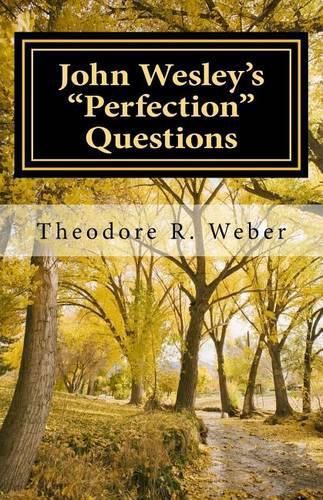Readings Newsletter
Become a Readings Member to make your shopping experience even easier.
Sign in or sign up for free!
You’re not far away from qualifying for FREE standard shipping within Australia
You’ve qualified for FREE standard shipping within Australia
The cart is loading…






This book is a study of Mr. Wesley’s three Christian Perfection questions. It is intended both to expound the meanings of the questions and to address the uncertainties and anxieties which many candidates for Full Connection bring to the experience of having to answer them. It is appropriate also for clergy who have been through the process and answered the questions. Some appointed preachers have told me that, having stood before the bishop and the Conference and answered appropriately, they want to get a clearer idea now of what they should have known when they gave an af-firmative answer! And, of course, some laity may want to read it in order to try to understand what their preachers are talking about when they sermonize about Methodist perfectionism (if they ever do!). The book is not written for specialists in the field of John Wesley’s theology, although of course they are welcome to read it, and to recommend it to their students if they find it useful. It adds nothing new by way of Wesley scholarship, but hopes to communicate a basic understanding of Wesley’s thought on these topics.
$9.00 standard shipping within Australia
FREE standard shipping within Australia for orders over $100.00
Express & International shipping calculated at checkout
This book is a study of Mr. Wesley’s three Christian Perfection questions. It is intended both to expound the meanings of the questions and to address the uncertainties and anxieties which many candidates for Full Connection bring to the experience of having to answer them. It is appropriate also for clergy who have been through the process and answered the questions. Some appointed preachers have told me that, having stood before the bishop and the Conference and answered appropriately, they want to get a clearer idea now of what they should have known when they gave an af-firmative answer! And, of course, some laity may want to read it in order to try to understand what their preachers are talking about when they sermonize about Methodist perfectionism (if they ever do!). The book is not written for specialists in the field of John Wesley’s theology, although of course they are welcome to read it, and to recommend it to their students if they find it useful. It adds nothing new by way of Wesley scholarship, but hopes to communicate a basic understanding of Wesley’s thought on these topics.